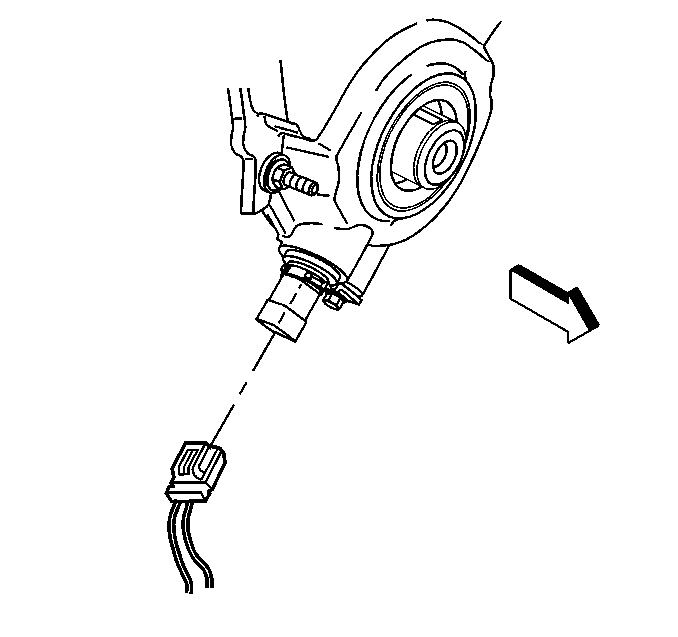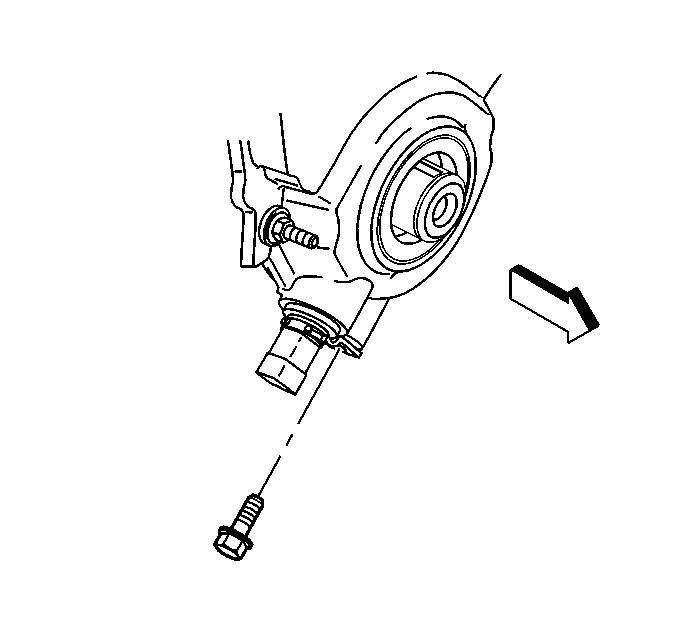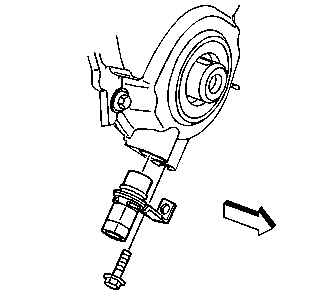Removal Procedure
- Disconnect the negative battery cable.
- Disconnect the CKP sensor harness connector.
- Remove the CKP sensor mounting bolt.
- Remove the CKP sensor.
Caution: Unless directed otherwise, the ignition and start switch must be in the OFF or LOCK position, and all electrical loads must be OFF before servicing any electrical component. Disconnect the negative battery cable to prevent an electrical spark should a tool or equipment come in contact with an exposed electrical terminal. Failure to follow these precautions may result in personal injury and/or damage to the vehicle or its components.



Installation Procedure
- Install the CKP sensor.
- Install the mounting bolt.
- Connect the CKP sensor connector.
- Connect the negative battery cable.
- Perform the CKP System Variation Learn Procedure. Refer to Crankshaft Position System Variation Learn .

Important: Make certain that the CKP sensor mounting surfaces are clean and free of burrs before installing the new CKP sensor.
When installing the CKP sensor make sure the sensor is fully seated and held stationary in the front cover before torquing the hold down bolt into the front cover. A CKP sensor which is not seated may result in erratic operation and lead to the setting of false codes.Important: Inspect the sensor 0-ring for wear, cracks or leakage.

Notice: Use the correct fastener in the correct location. Replacement fasteners must be the correct part number for that application. Fasteners requiring replacement or fasteners requiring the use of thread locking compound or sealant are identified in the service procedure. Do not use paints, lubricants, or corrosion inhibitors on fasteners or fastener joint surfaces unless specified. These coatings affect fastener torque and joint clamping force and may damage the fastener. Use the correct tightening sequence and specifications when installing fasteners in order to avoid damage to parts and systems.
Tighten
Tighten the bolt to 8 N·m (71 lb in).

Important: The CKP System Variation Learn Procedure will need to be performed whenever the crankshaft position (CKP) sensor is removed or replaced.
